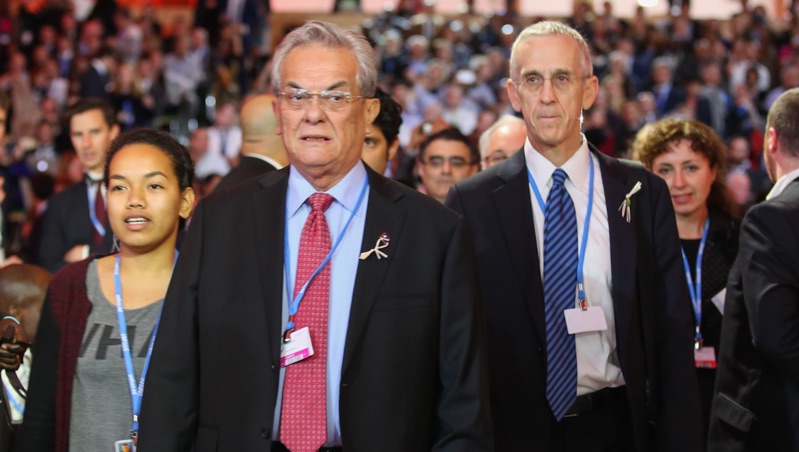The HAC is back. A coalition of 35 countries committed to tougher climate change policies has re-emerged at the UN’s Montreal Protocol talks in Vienna.
Born at the 2015 Paris climate summit, the “high ambition coalition” is made up of Pacific island, African and Caribbean governments, EU member states, the US, Mexico, Canada and Brazil.
The broad alliance of developed and developing countries was widely credited with ensuring the Paris meeting ended in agreement, but few believed it would survive once the summit ended.
The group will meet on Friday afternoon on the sidelines of a critical round of UN talks on phasing out HFCs, a potent set of greenhouse gases used in fridges and air conditioning.
Weekly briefing: Sign up for your essential climate politics update
US secretary of state John Kerry, Canadian environment minister Catherine Mckenna and EU climate chief Miguel Arias Canete are among those set to attend.
“It is clear there is still a lot of work to do to secure a safe climate future… if we are to succeed, our high ambition coalition must again take the lead,” Marshall Islands climate ambassador Tony de Brum told Climate Home.
“We are already looking at what we can do to ramp up ambition and bring the Paris Agreement into force this year, and how best to bring ‘the Paris effect’ to other forums like the Montreal Protocol.
“There is a huge opportunity to double down on what we agreed in Paris by agreeing to an ambitious phase out schedule for some of the most potent greenhouse gases.”
Simply cannot keep within 1.5°C without an ambitious #MontrealProtocol amendment. Our #HighAmbitionCoalition must again take the lead. TdB
— Tony de Brum (@TonydeBrum) July 22, 2016
Coalition members met at a Paris climate deal signing ceremony in New York this April, and again at the Petersberg Climate Dialogue in Berlin earlier this month.
Ministers decided on three priorities: bringing the Paris climate deal to enter into force this year, pushing for a global aviation emissions deal and securing radical HFC cuts.
They are keeping quiet on UN shipping talks, where progress towards an emissions target for the sector has stalled.
With 0.5C of warming at stake, climate vulnerable countries see the Montreal Protocol negotiations as a critical step in their drive to limit temperature rises to 1.5C.
Data from US agencies NASA and NOAA suggests global land and sea temperatures have edged close to 1.3C above pre industrial levels this year, boosted by a rampant El Nino weather event.
The UN has commissioned a special report into warming above 1.5C. Studies show impacts like coral reef destruction, sea level rise and tropical heatwaves kicking in at this threshold.
https://twitter.com/ec_minister/status/756154311227351041
With ministers from the EU, Canada and Micronesia tasked by the coalition to help deliver an HFC deal when the Montreal Protocol meets again in Kigali, Rwanda this October, de Brum hopes it can again show its worth at the UN.
“I’m very encouraged to hear from our team on the ground in Vienna that such strong progress has been made over the past week,” he said.
“The attendance of Secretary Kerry and so many other ministers shows that a high ambition coalition is already forming there and that the world’s political gaze is very much focused on securing the strongest possible outcome in Kigali.
“The science tells us this this has the potential to wipe off half a degree of warming by the end of the Century – we simply cannot achieve a 1.5C world without it.”
